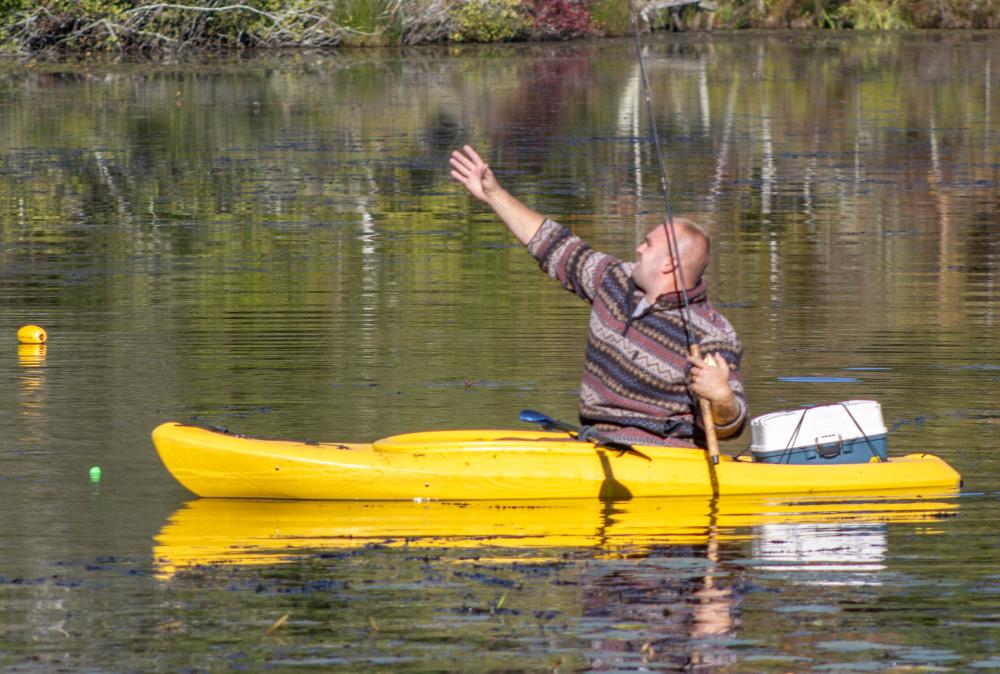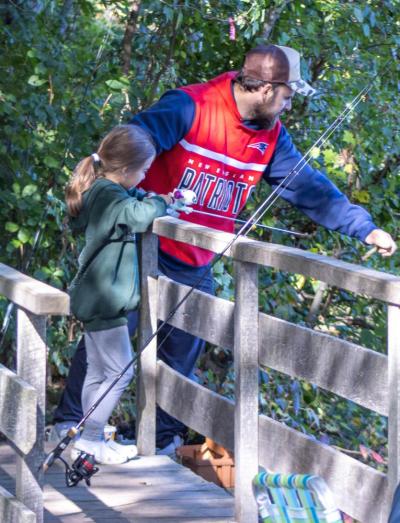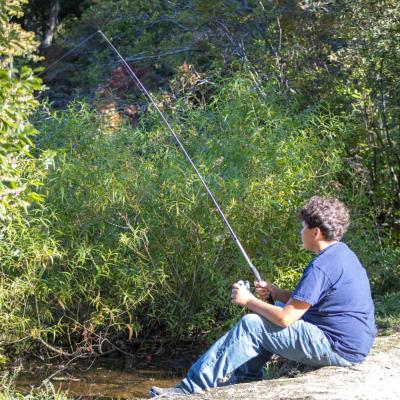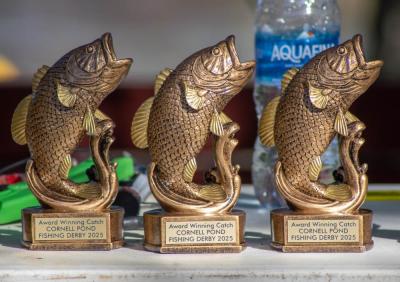Best catch: fishing derby returns for 20th year
When Jacob Roy was growing up, he lived just down the street from Cornell Pond and participated in the EPA’s annual fishing derby nearly every year.
After moving back to the area, Roy returned to the EPA’s 20th derby, this time with children of his own.
“It’s just a day to come out here and have a little fun,” he said. “Hopefully the kids will catch a fish.”
This year marks the EPA’s 20th annual fishing derby at Cornell Pond, which began as a way to collect fish to sample fish tissue for contaminants from the nearby Re-Solve superfund site.
Superfund sites are areas that are contaminated with hazardous waste and are often found near old landfills and old industrial sites where there is still chemical waste, industrial waste and contaminants left in the environment, according to EPA Community Involvement Coordinator Liz McCarthy.
“For this particular site, the big concern was groundwater contamination,” she said.
The EPA holds the annual fishing derby to sample fish tissue for polychlorinated biphenyls, or PCBs, which are manmade chemicals that were used in industrial and commercial applications, such as electrical equipment and carbonless copy paper. The chemicals were banned in 1979 by the Toxic Substances Control Act as they were harmful to both people and the environment.
McCarthy called PCBs “nasty, nasty manmade chemicals” and explained that they can bioaccumulate in fish.
By testing fish tissue, scientists can measure how contaminated the superfund site is with PCBs, which McCarthy said is the contaminant the EPA is the most concerned about.
“We can get a more accurate feel of if those chemicals are out here in the environment,” she said.
The EPA chose to combine the sampling with a fishing derby 20 years ago as a way to get the community involved and “draw on the local expertise of the community,” McCarthy said.
When participants catch a fish, they bring it to a table where they are measured to determine if they meet the necessary measurements to be sampled.
“If they don’t fit those requirements, we’ll throw them back at the end of the day,” McCarthy said.
She called the derby a “low stress environment” where kids can learn how to fish and “be outside with their local community.”
Kolby Cunningham, 12, caught two fish during the derby — a 14-inch pickerel and an 8.5-inch large mouth bass.
“You have to be patient because after a while of waiting, it pays off. It’s worth it,” he said.
Michelle Perry of Dartmouth, who attended the fishing derby with Cunningham, said the event was “a fun day out.”
And while Perry didn’t catch any fish she did catch a turtle, noting that she could see it “going by my line” while she was fishing.
Cunningham compared competing in a fishing derby to a basketball game.
“It’s going left and right, [and] you have to win the competition, but it’s also fun,” he said.
McCarthy said the fishing derby is an event that many people in her office get excited about.
“It’s not very often we get to do citizen science events like this,” she said.
















